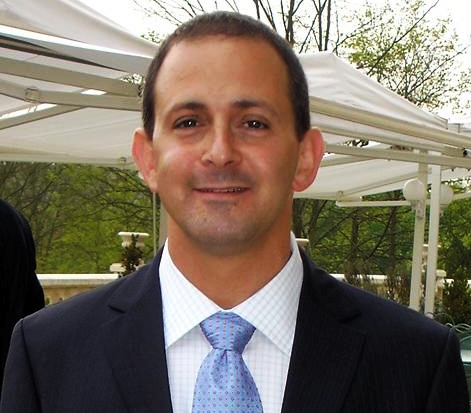Biopesticides Make Headway Into Row Crops: Q&A with Stockton Group’s Ziv Tirosh

Ziv Tirosh, CEO of Stockton Group; Photo courtesy Stockton Group
FCI: As more major multinationals have entered the biopesticides arena in recent years, will more suppliers, and larger suppliers, mean wider distribution and deeper market penetration – especially in row crop areas like the U.S. Midwest? How much more consolidation do you believe the industry will see?
In an industry dominated by a single-digit amount of multinationals, it is absolutely necessary for these players to adopt new technologies in order for these to be adopted by farmers worldwide. Multinationals maintain two crucial keys: market access and market education. So this is true for biopesticides as well, and indeed we’ve begun hearing, reading and seeing more of biopesticides after the multinationals began understanding the value proposition of biopesticides and how the fit into their spraying programs. This has led to several M&A and licensing agreements that signaled to the farmers that biopesticides are here to stay.
I trust it is correct to say that we are still in the very initial era of penetration of biopesticides and their full adoption into spray programs. The full value proposition of biopesticides is yet to be discovered but we have enough value already to make this into a solid shift. Biopesticides have a natural fit at the end of the crop cycle when agchems are restricted due to residue and PHI issues. During the middle of the spray program they are usually applied in rotation or in tank mixes. To sum up, biopesticides are being combined into spray programs around the world, slowly but surely.
Initial penetration began into fruit and vegetables where sensitivities around residues are naturally high. That was a great starting point, but the heart and soul of our food chain is row crops and it’s a different ball game in terms of economics and application rates. Nevertheless, at Stockton and at other biopesticides’ companies we’re working hard at creating biopesticides that will work economically on row crops.
So there’s no doubt that the continued adoption of biopesticides by multinationals means that penetration into mainstream spray programs will continue at a rapid pace and clearly this will add to the exploration of value into row crops.
To answer your question in terms of consolidation – developing biopesticides requires deep scientific capabilities and commitment to innovation and market education. Taking into consideration that there are three to four players with substantial global market access plus experience with market education regarding adoption of new technologies, it seems valuable for each of the few biopesticides developers to team up with one of the big players.
FCI: What growth plans would you like to share for your company’s future? Any up-and-coming markets?
Stockton began the market introduction of Timorex Gold primarily in Latin America. As of today Timorex Gold is registered in 26 countries worldwide. 2014 is an important year for Timorex Gold. We are beginning our commercial entry into Canada after obtaining our registration there in 2013 and we are expecting registrations in two major markets in the coming months: USA and Brazil.
While continuing our geographical expansion we also continue our product development and exploration and we continue expanding the use of Timorex Gold into additional crops. As of today the product is sold with repetitive sales in vines, coffee, rice, bananas and many other fruit and vegetables. Timorex Gold is only in the early days of its commercial penetration. It’s a unique broad spectrum fungicide and bactericide and we plan for it to grow in sales substantially on a global basis in the coming years.
FCI: Can you share any new information on the EU award you were given to research a new class of biopesticides?
Stockton is one of the members of an EU R&D consortium led by Copenhagen University called “TriforC” or “Triterpenes for Commercialization.” The consortium includes several leading European universities with strong plant sciences departments and a few commercial companies. The consortium has won a Euro 9MM R&D grant to research triterpenes and to commercialize the products in several areas. Stockton is the exclusive crop protection partner with exclusive commercialization rights for crop protection worldwide. The consortium is already deep at work and we expect that quite a few products will be developed by us based on this collaboration.
FCI: What are some of the major biopesticide product lines gaining more traction – Stockton’s and beyond?
Stockton is focused on integrating effective green innovation into conventional crop protection. Our innovation approach assumes synthetic chemicals will continue to play a major role in the future of crop protection for many years to come. We believe bio innovation needs to play the role of “best supporting actor” with a focus on fitting into conventional crop protection spray programs alone or in combination with synthetic chemicals. We are therefore focused on bio innovation and more specifically on plant extract-based bio-chemistry.
In addition to keeping or improving efficacy levels, we believe there are additional merits to our approach. The combination of plant extract-based bio-chemistry with environmentally acceptable synthetic chemistry can significantly contribute to reducing toxic loads in the soil and of harmful residues in fresh produce. We are also committed to delivering new modes of action to a segment currently suffering a relative lack of innovation.
Our pipeline includes a variety of plant extract-based active ingredients mostly in the form of a potent isolated molecule along different phases of development. The successful development of Timorex Gold has set a high standard for our pipeline development program. Our future products include novel plant extract-based biomolecules that are being developed into potent fungicides, insecticides and bactericides, all targeting at least four relevant pests/diseases/bacteria.
The biopesticides we develop are IP-protected, broad spectrum, easily blended with chemicals for mixed formulations and are formulated, bottled and handled exactly like chemicals. No special adjustments are needed. We see this as a big advantage of plant extracts over microbial sources.
FCI: Overall, how would you sum up the biopesticide industry’s progress through the first half of this year – as far as technology, efficacy, buyer acceptance/product knowledge as well as adoption rates?
The value proposition of biopesticides is clear and adoption rates are good, thus we’re seeing biopesticides entering more spraying programs, in more crops and in more geographies. This is an excellent trend, for the farmer, the planet and the consumer and we are certain it will keep growing in pace and quantities. These are long-term trends so we don’t see changes on a monthly basis, but we do see annual growth throughout.
One surprising parameter that we are using here at Stockton to measure the rapidly growing interest in biopesticides has to do with the number of visits to our website (www.stockton-ag.com). This monthly average has grown from 300 entries two years ago to 7,000 monthly on a regular basis!






